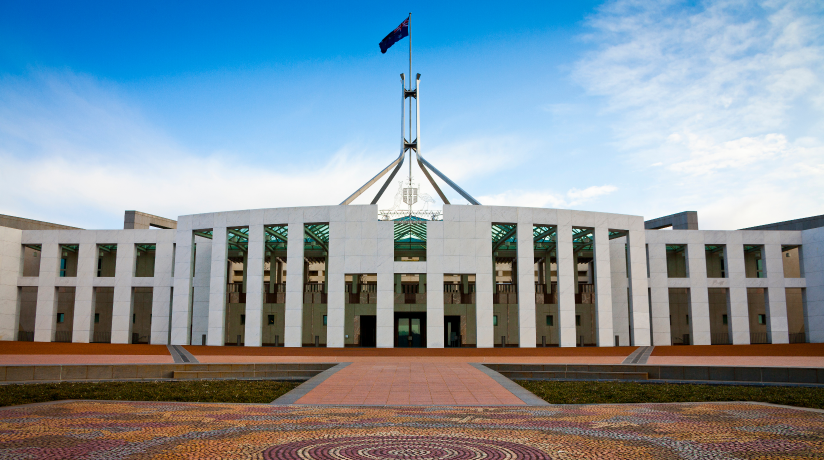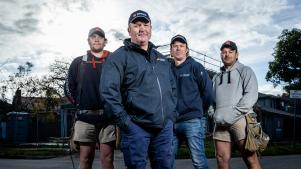MBV welcomes some measures announced in the 2023-24 Federal Budget released last night. Jim Chalmers delivered his second budget, which focused on the cost of living, strengthening the budget balance and Medicare services, advancing equality and modernising our economy.
Below are the key Federal Budget matters relating to our industry.
Housing
- Liability cap of NHFIC increased by $2 billion to a total of $7.5 billion.
- For eligible new build-to-rent projects where construction commences after 9th May 2023
- The rate of capital works tax deduction (depreciation) will increase to 4 per cent from 2.5 per cent.
- The final withholding tax rate on eligible fund payments from Managed Investment Trust (MIT) investments will be reduced to 15 per cent from 30 per cent previously from 1st July 2024.
- Maximum Commonwealth Rent Assistance (CRA) rates to be increased by 15 per cent, worth a maximum of $31 extra per fortnight for those eligible in the private rental market.
- Extension and expansion of the scope of the Personal Income Tax Compliance Program to include closer scrutiny that short-term rentals are genuinely available to rent.
Construction industry skills
- An additional $3.7 billion upon striking a five-year National Skills Agreement with states and territories to ensure more access to vocational education and training, with TAFE at the centre. National Cabinet has agreed that gender equality and women’s participation in labour markets will be a focus of the NSA and jurisdictions will work collaboratively on national skills priorities, including transformation to a net zero economy.
- $436 million over four years to fundamentally reform the way the Commonwealth delivers Foundation Skills programs, so more Australians over the age of 15 who need training to improve their literacy, numeracy and digital skills have access.
- An additional $54.3 million in critical Australian Apprenticeship support to improve completion rates. Improving the quality of services and better-targeted support will be particularly crucial to supporting women, First Nations people, CALD apprentices, and people with disability to complete their apprenticeship.
- $8.6 million to deliver the Australian Skills Guarantee and introduce national targets for apprentices, trainees and paid cadets working on Australian Government funded major infrastructure and ICT projects. This includes responsible sub-targets to boost women’s participation in apprenticeships.
- $3.9 million in additional funding over two years to establish a defence vocational skills taskforce. This will help develop the workforce required to shape our sovereign industrial base and support the delivery of Australia’s nuclear submarine program.
- $42.2 million to develop a modern fit-for-purpose IT system for the VET Student Loan program.
Small business
- $20,000 instant asset write-off for small businesses (less than $10 million annual turnover) from 1 July 2023 to 30 June 2024.
- New Small Business Energy Incentive to support investments in power-saving assets: businesses with less than $50 million in turnover will be able to deduct an additional 20 per cent (up to a maximum of $20,000) of the cost of eligible depreciating assets that support electrification and more efficient energy use. Eligible expenditures include electrifying heating/cooling systems, installing batteries and upgrading to high-efficiency electrical goods.
- $392.4 million over four years from 2023–24 (and $68.2 million per year ongoing) to establish the Industry Growth Program to support Australian SMEs and startups to commercialise their ideas and grow their operations. Support will be targeted toward businesses operating in the priority areas of the National Reconstruction Fund.
- $39.6 million over four years from 2023–24 (and $11.0 million per year ongoing) to continue the Single Business Service, supporting small and medium-sized enterprises (SME) engagement with all levels of government.
- This measure repurposes and expands funding that was previously supporting SMEs through the Entrepreneurs’ Programme and is additionally offset by redirecting funding from within the Industry, Science and Resources portfolio.
- Greater support for small businesses for the take up of digital technologies.
- For four years from 1 July 2023, more funding to allow the Australian Tax Office (ATO) to engage more effectively with businesses with high-value debts to the ATO (over $100,000) or aged debts more than two years old.
- As part of this, a lodgement penalty amnesty program is being offered to small businesses (less than $10 million annual turnover) to encourage their re-engagement with the tax system.
- The Energy Price Relief Plan is already estimated to be assisting around one million small businesses with direct bill relief.
Labour supply
- On top of the standard CPI-based adjustment, Visa Application Charges are to be increased as follows from 1 July 2023:
- Increase of an additional 15 percentage points for selected visitor and temporary visas;
- Increases of 40 percentage points on Business Innovation and Investment visas;
- The Pacific Engagement Visa and Pacific Australia Labour Mobility scheme are exempt from the VAC uplift.
Taxation
- Tighter superannuation tax concessions for those with balances exceeding $3 million from 1 July 2025.
- A 15 per cent global and domestic minimum tax for large multinational companies.
- Increases in the Petroleum Resource Rent Tax.
- Extending tax compliance programs.
- Resources to increase GST compliance including greater scrutiny of how businesses record GST remittances and that they are correctly claiming GST tax refunds.
Industrial Relations and Safety
The Government will provide $27.4 million over 4 years from 2023–24 (and $1.1 million per year ongoing) to improve the safety and fairness of workplaces, and continue detailed consultation with key industries. Funding includes:
- $20 million over two years from 2023–24 to increase the Productivity, Education and Training Fund, to support engagement and practical activities of worker and employer representatives with workplace reforms as they progress and the implementation of the Government’s Workplace Relations agenda.
- $4.4 million over four years from 2023–24 (and $1.1 million per year ongoing) to establish the National Construction Industry Forum including representatives from key employer groups, unions and government to provide advice on major challenges facing the building and construction industry including workplace relations, industry culture, skills and training, safety, gender equality and productivity.
- $2.0 million over two years from 2023–24 to develop a targeted training package on workplace psychosocial hazards, to be provided to organisations that train health and safety representatives in the Commonwealth jurisdiction.
- $0.8 million in 2023–24 to conduct a review of modern awards in the context of new gender equality and job security objects and the updated modern awards and minimum wages objectives in the Fair Work Act 2009, the review will also consider opportunities to make awards simpler to use.
- $0.3 million in 2023–24 for a specialist review into the operations of the Office of the Fair Work Ombudsman.
Silicosis
- The Government will provide $10.0 million over four years from 2023–24 (and $1.9 million per year ongoing) to address the rise of silicosis in workers and develop a national strategy for the prevention of silicosis and silica-related diseases. Funding includes:
- $4.7 million over four years from 2023–24 (and $0.8 million per year ongoing) to establish a dedicated occupational lung diseases team to oversee implementation and investigate long-term reforms for an improved national framework for occupational lung diseases.
- $4.2 million over four years from 2023–24 (and $1.1 million per year ongoing) to extend the Asbestos Safety and Eradication Agency’s remit to include the prevention of silicosis and other silica related occupational diseases and broaden the functions of the Asbestos Safety and Eradication Council.
- $1.2 million over two years from 2023–24 to Safe Work Australia’s social partners to increase awareness and support better work practices relating to managing silica dust in the workplace.
Resilience to natural disasters
- More than $236 million over the next 10 years to address critical, long-standing risks in Australia's flood gauge network. This will be done in partnership with state and territory governments, to ensure communities, emergency services and businesses have reliable access to flood forecasts and warnings – to inform action when flood events happen.
- $8.6 million to generate a National Emergency Management Stockpile (NEMS) of life-saving resources. This will provide state and territory governments with rapid access to critical disaster resources, such as self-sufficient emergency shelter camps, water desalinisation and purification systems and emergency high-output power generation.
Support for households
- $14.6 billion cost of living plan.
- Up to $3 billion in direct energy bill relief: this will deduct up to $500 from the power bills of more than five million households during 2023-24.
- Household Energy Upgrades Fund: $1.3 billion to support low-cost loans for 170,000 households for double-glazing, solar panels and other improvements that reduce domestic energy consumption.
- $40 per fortnight increase for JobSeeker recipients as well as those receiving Youth Allowance, Austudy and some other income supports.
- Reducing the qualifying age from 60 to 55 years for a more favourable rate of JobSeeker support.
- Parenting Payment (Single) to be continued until the youngest child turns 14 years, compared with the current eight years old cut-off. This will provide an extra $176.90 per fortnight for those eligible.
- $72.4 million to retain and recruit more early childhood educators.
Energy and industrial development policy
- New Hydrogen Headstart program worth $2 billion.
- $4 billion allocated to the development of renewable energy.
- New Capacity Investment Scheme with the goal of unlocking over $10 billion worth of investment east coast renewable energy projects.
- A new Powering Australia Industry Growth Centre.
Cities and regions
- $3.8 billion defence funding for northern base infrastructure.
- $250 million for a new Central Australia package to improve safety and provide more opportunities for young people in their communities.
- Up to $3.4 billion in funding over 10 years to support Brisbane 2032 Olympic/Paralympic Games venue infrastructure.
- $240 million to unlock Macquarie Point precinct in Hobart.
- $65 million for stadium redevelopment in Launceston.
- The Thriving Suburbs Program is being funded with $200 million over two years from 2024-25 to provide merit-based and locally driven grants that address shortfalls in priority community infrastructure in urban and suburban communities.
- The $150 million urban Precincts and Partnerships Program will support transformative investment in urban Australia based on the principles of unifying urban places, growing economies and serving communities. This program will fund both the development of precincts through facilitating planning, design and consultation, leading to business cases for investment-ready proposals, as well as a stream to support delivery of larger scale precinct projects.
- $262.3 million in national parks funding.
- $535.3m in upgrades to cultural institutions including the National Gallery of Australia.






